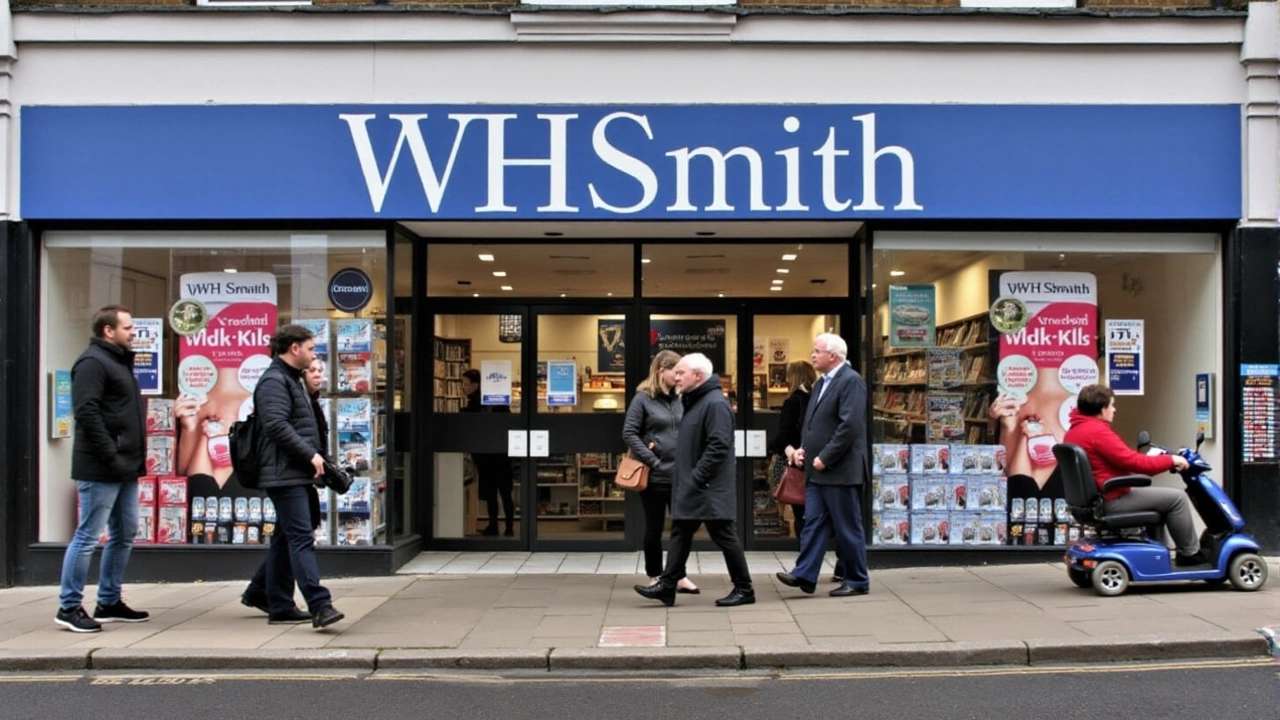For over two centuries, WHSmith has been synonymous with British retail, a name etched into the centuries-old story of the bustling High Streets across the UK. Now, in an era marked by sweeping changes in consumer behavior and retail economics, WHSmith is contemplating a monumental shift—a potential divestiture of its storied High Street arm. The revelation comes amid buzz and speculation about the end of an era for one of Britain's oldest and most cherished retail icons.
The mere whisper of a potential sale has jolted the business community, as WHSmith confirmed it is actively exploring various strategic options for its High Street division. At the heart of this exploration is the appointment of Greenhill, a notable investment bank, tasked with navigating the complexities of this potential transaction. Such a decision is monumental, not just for the company, but culturally, symbolically for the UK High Street itself.
The company's latest move has been catalyzed by the staggering success and growth of its Travel division. Over recent years, WHSmith has steadily expanded its footprints globally, boasting over 1,200 stores spread across 32 countries. The Travel division is undeniably the heart of WHSmith’s business now, contributing a robust three-quarters of the Group's overall revenue and a staggering 85% of trading profit. These figures starkly contrast with the relatively modest performance of the High Street branches.
The High Street arm, encompassing over 520 branches in the UK, has significantly diminished in terms of its contribution to the Group’s financial health, accounting for a mere 15% of the annual trading profit. The financial figures for the year to August 31 highlight a nuanced and telling story. The Group reported pre-tax profits of £166 million. Still, the traditional High Street sector has witnessed stagnant earnings of £32 million, with like-for-like sales declining by 2%. This underperformance begs the question of the sustainability and strategic benefit of maintaining the High Street presence in its current form.
WHSmith has undergone a significant transformation in its focus over the past decade. The shift from a predominantly British high street retailer to a formidable travel retail titan has been strategic and fruitful. This shift is emphasized by the growth stats, where Travel UK's revenue expanded by 12%, North America by 9%, and an 18% increase across the Rest of the World. The streamlined focus towards travel retail has essentially been the lifeline, keeping the business not just afloat, but thriving amidst a backdrop of retail challenges.
The possible sale of the High Street arm is not set in stone, and no certainty looms over whether a definitive agreement will materialize. Still, the buzz has certainly stirred industry watchers and stakeholders alike, all keenly awaiting further developments. WHSmith has made it clear that further announcements will follow when concrete advancements occur. This careful and calculated approach is a testament to the gravity and potential impact of such a decision.
For the nostalgic British consumer, this potential breakup may feel like a farewell to a cherished chapter in retail history. However, for WHSmith, this strategic maneuver could signify a sharpened focus on global dominance and retail relevance in an age increasingly defined by specialization and strategic depth. As the future unfolds, the role WHSmith will play on the British High Street, if any, remains to be seen—a future balancing tradition and evolutionary progress.
